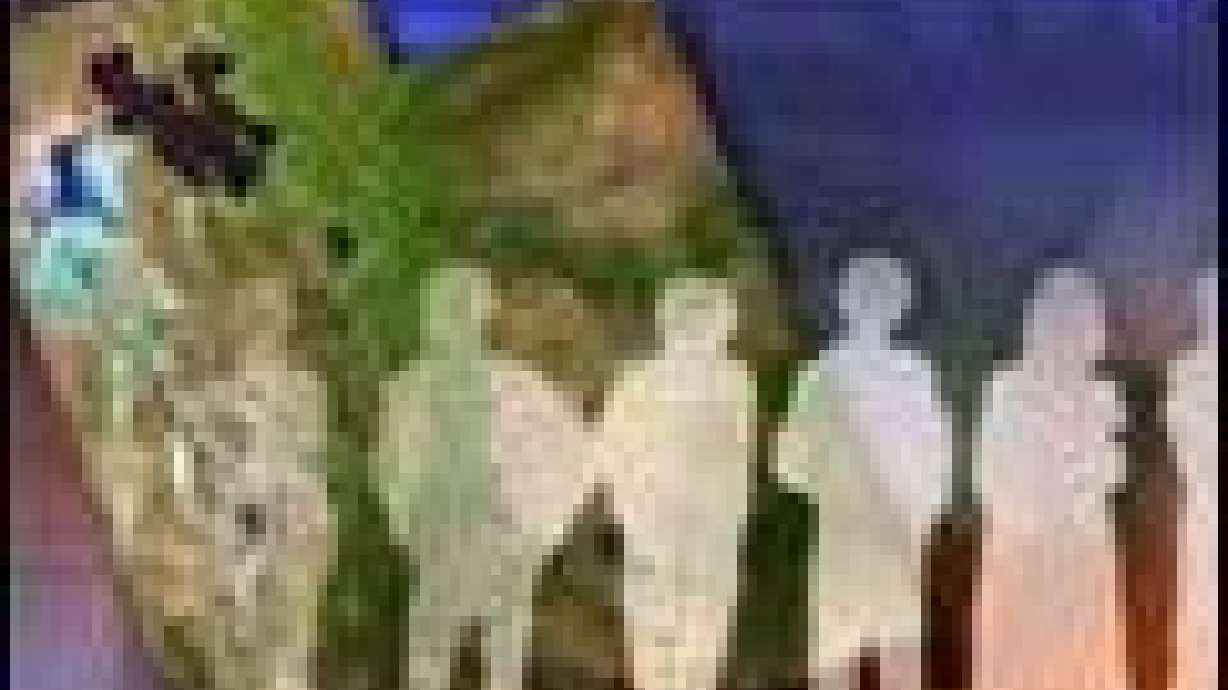Estimated read time: 2-3 minutes
This archived news story is available only for your personal, non-commercial use. Information in the story may be outdated or superseded by additional information. Reading or replaying the story in its archived form does not constitute a republication of the story.
SALT LAKE CITY (AP) -- Utahns who belong to the Mormon church make up 60.7 percent of the state's population, the lowest share ever.
The percentage has declined every year for nearly two decades, according to membership numbers supplied by The Church of Jesus Christ of Latter-day Saints.
The numbers, along with statistics from school districts, the Internal Revenue Service and other sources, helped state officials last week when they estimated Utah's population at 2.69 million, as of July.
If the trend holds, Mormons will make up less than half of Utah's population by 2030.
The state gained more than 84,000 residents between the summers of 2006 and 2007, about half of them transplants.
Utah "will always be a dominant center for that religion. That is not going to change," said Pam Perlich, a demographer at the University of Utah. "But a slow, steady decline of the Mormon share will continue as long as the state grows."
The Mormon church, which has world headquarters in Salt Lake City, declined to comment on the trend.
"The Saints will likely surrender majority status in the state within a couple of decades," said Philip Barlow, a professor of Mormon history and culture at Utah State University. "But its members are apt to remain the dominant social/political force, albeit in diluted fashion, for the foreseeable future."
Kelly Patterson, a political scientist at Brigham Young University, said Mormons vote at higher rates than non-Mormons, which will give them a larger influence.
But he expects the slow rise of the Democratic Party, and the growing non-Mormon population in Salt Lake County, will result in more political clashes.
"A competitive two-party system seems to serve democracy better in the long run," Patterson told The Salt Lake Tribune.
------ Information from: The Salt Lake Tribune
(Copyright 2007 by The Associated Press. All Rights Reserved.)









